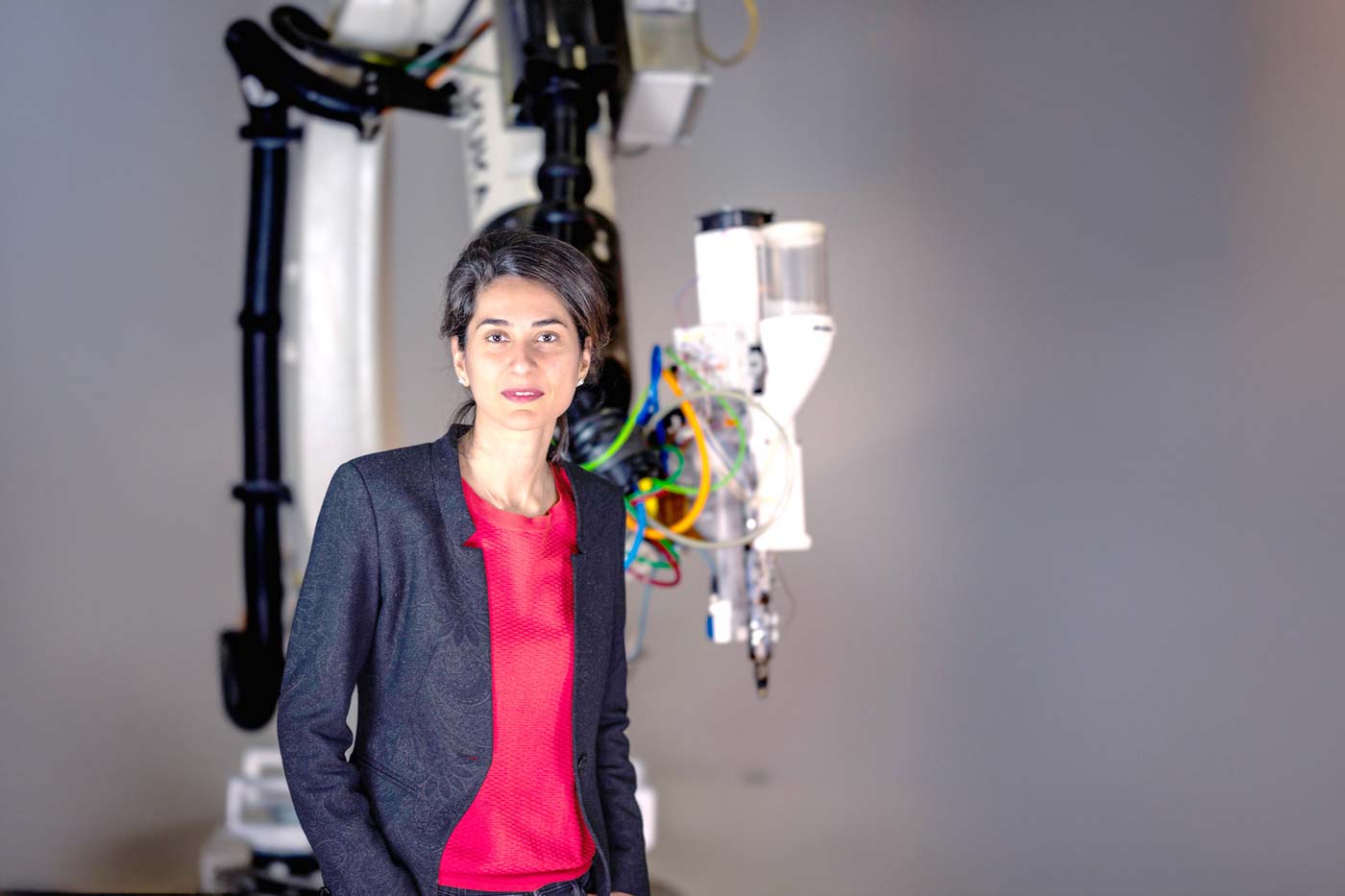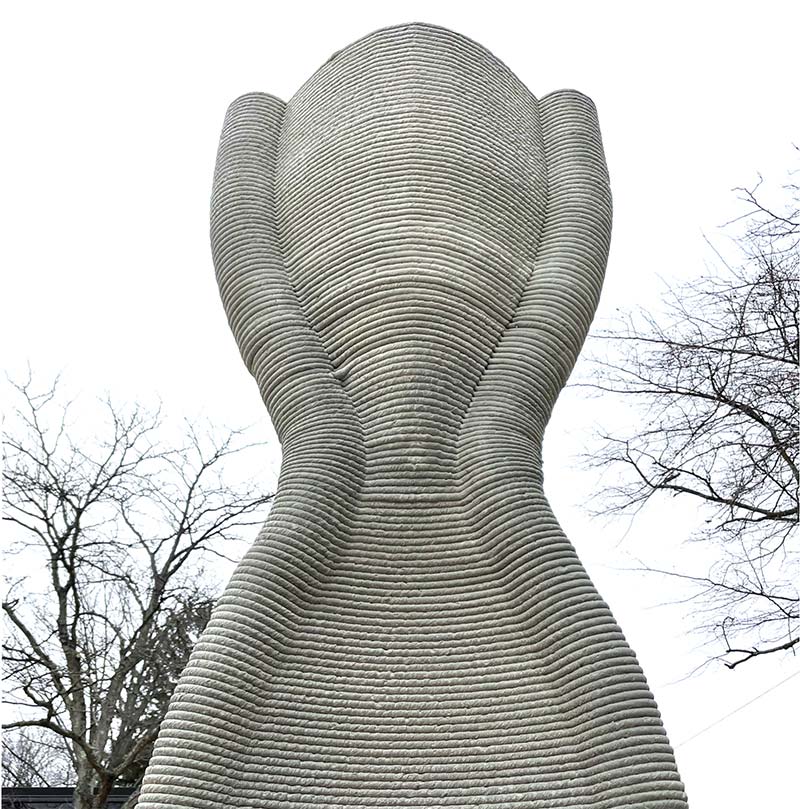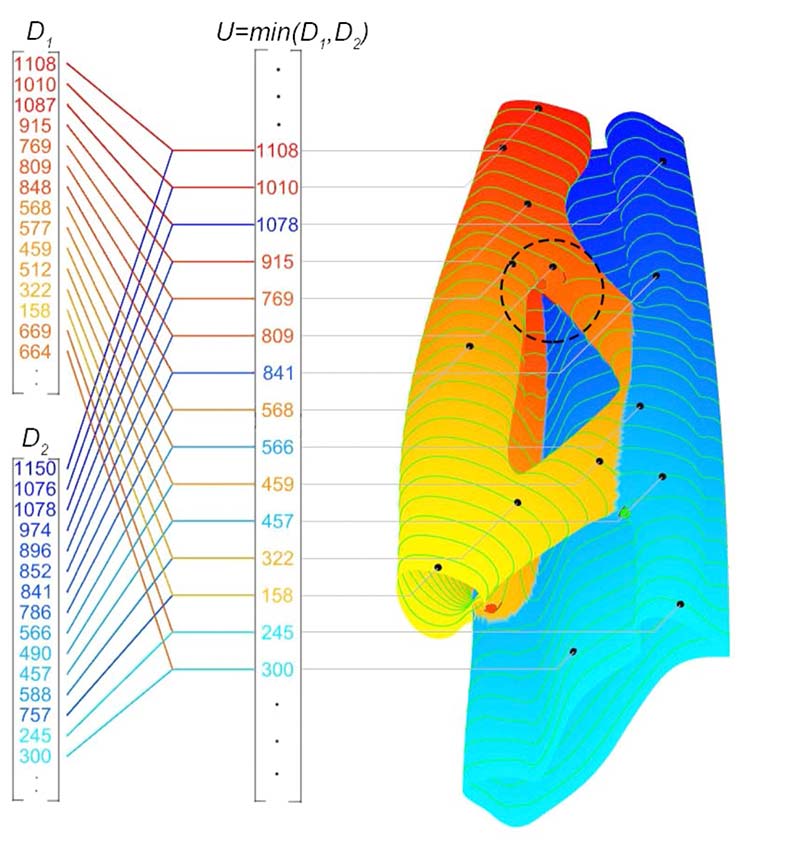
Aghaei Meibodi receives NSF CAREER Award
Mania Aghaei Meibodi, Ph.D., assistant professor of architecture at Taubman College, has received the Faculty Early Career Development (CAREER) Award from the National Science Foundation for her research proposal “CAREER: Data‑Driven Extrusion‑Based Robotic Three‑Dimensional Printing of Reinforced Concrete.” The five-year NSF grant will support the development of intelligent, non-planar slicing models and data-driven, robotic 3D printing methods to create materially efficient structural building elements, enabling the rapid construction of multi-story buildings and helping to address urgent housing shortages. This grant will also support Aghaei Meibodi in integrating education and outreach with her research through courses in robotic 3D printing, computational geometry, data modeling, and machine learning, as well as community engagement to broaden participation in STEM.
The NSF’s CAREER Program is the agency’s premier investment in rising scholars and teachers. Designed for early‑career faculty who marry pioneering research with transformative pedagogy, a CAREER Award celebrates work that simultaneously advances fundamental knowledge and broadens learning, shaping the future of the field. Expectations exceed those of standard NSF grants: Investigators are challenged to open new intellectual frontiers while crafting education and outreach plans that elevate the next generation and extend their discoveries well beyond the laboratory.
Aghaei Meibodi leads the DART Laboratory, developing intelligent computational design and robotic construction methods for high-performance building components. Leveraging rich sensing data from both fabrication and in-service operation, the team’s learning-based generative models suggest new geometries in the design space and simultaneously set the parameters for robotic 3D printing and assembly, fully closing the loop between design, making, and real-world performance. Her lab develops next‑generation algorithms, models, and hardware to advance the field of computation and robotics in architecture and construction, creating intelligent systems that address urgent societal needs, uncover design and fabrication opportunities once thought unimaginable, and give rise to architecture that is efficient, elegant, and curiosity‑inspiring.
Follow DART Laboratory’s Instagram for news.


A 3DCP material‑optimized wall (left) and a data‑driven model for automated non‑planar slicing. Copyright DART Laboratory.









